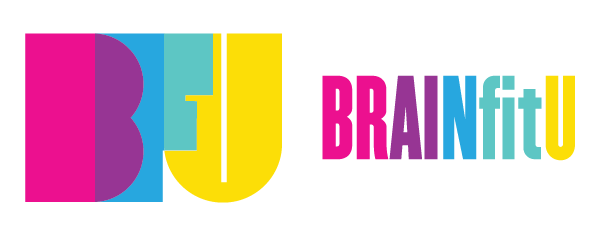Having ADHD can be a struggle for some kids, mostly when it comes to interacting with other children. They may be labeled too loud, bossy, annoying, or spacey. Kids with ADHD can be the kindest, most loving kids on the planet, but their classmates may have a hard time relating, or looking past the “noise” to get to know them. As a parent, this can be heartbreaking; all you want is for your kid to make long lasting, genuine friendships. And as a parent, sometimes you need tools to help your kid out when they enter school, that will help them strengthen their social skills. Depending on how old your kid is, here are some age-based tips that you can use.
Elementary School
The Loner – Does your kid have trouble jumping into the mix? Spends a lot of time alone? Feels rejected and won’t initiate with their classmates?
Tip: Self esteem plays a role in your child not feeling like they fit in or having the confidence to put themselves out there. It’s your job as their parent to help build their confidence and ensure them that they aren’t alone. ADHD or not, some kids aren’t as social or outgoing as others. Some kids will benefit from practicing different interactions they may encounter during their day. Encouraging them to express and advocate for themselves, this will also benefit their communication skills. Help your child figure out what peaks their interest, this will help them identify others with common interests and gives them a tool to connect with kids. Building friendships is linked to confidence and can curb their loneliness.
The Boss – Do you have a know-it-all? The kid who wants it their way or no way? It’s hard for these kids to make friends because they don’t know when to compromise. Taking turns, sharing in the decision making process or adapting isn’t in their wheelhouse.
Tip: Positive reinforcement. When you notice your child making a compromise, being flexible with others, tell them! Tell them you’re proud that their adapting with others in this situation. It’s also important to be understanding when they aren’t being flexible and talking to them about why it’s hard for them. Daily talks about how they can meet their friends halfway, sharing, taking turns will greatly benefit your child. Practicing these skills at home with siblings or during games will also help.
Middle School
Irritator – Does your ADHD kiddo like to tell the same joke over and over until no one’s laughing anymore? Or do they repeat themselves? It can be exhausting and overwhelm their classmates.
Tip: Kids with ADHD typically lack self-regulation. It’s important to help them strengthen this skill, so you can ask them what they are feeling when they are calm vs. when they are excited. You can agree with your middle schooler that you’ll check in with them to see how they’re feeling (mentally and physically) at the moment when they get overly excited. This will allow you to identify when a calming strategy would be useful. You can work with your middle schooler on things like deep breathing (yoga breathing is great!), havening (an anxiety reducing technique), or physical activities like jumping jacks, running or pushups, which release serotonin and dopamine.
The People Pleaser – Maybe your kiddo tries a little too hard to be liked, or they show an intensity to pursue friendships, your kid might be a people pleaser. They tend to accept any and all friendships with little regard to how that relationship might be mutually beneficial. They can also fall into the role of the “clown” or “funny friend” in a desperate attempt to get people to like them.
Tip: Your kid needs help recognizing that they are a valuable contributor to any group, they have their own gifts and personality traits that make them a person someone would want to be friends with. Helping your kid build their confidence is a key factor to feeling valued and worthy of someone else’s time. Talk to your teen about friendships, how they can evaluate them, what to expect in return, what they can contribute, discuss how they want to be treated and this will lead them to being able to problem-solve on their own.
High School
Instigator – High Schoolers can be tough, adding ADHD to the mix can be a challenge. Most kids don’t go out of their way to be rude; when your teen has ADHD they might know how to communicate or initiate their executive function skills, and this can make them come across that way. It’s possible your teen is using drama and conflict to stimulate their brains, even the “sweetest” kid can lash out, blame others, gossip and tell secrets.
Tip: Try using a code word when you think your teen is using an abrasive tone, it’s possible they don’t even realize they’re doing it. You can ask your teen to try to put themselves in someone else’s position. Have them interpret how that person might make their friends feel in these situations.
Overly Emotional Teen – Some kids can get triggered by the most harmless of comments, this can send your teen into a full blown tailspin of rejection sensitive dysphoria.
Tip: There may be signals that indicate your teen is having an emotional reaction to a situation, help them recognize these signals and teach them calming techniques. Being a supportive parent when your child is struggling in the heat of the moment is necessary, especially when they’re having a big reaction. You may want to implement breathing techniques (like mentioned previously), that way, when they do start to have a big reaction, they can reduce their adrenaline and move to a clamer, less reactive and more thoughtful state.
Additional Tips: No one likes being told what to do, this can make a lot of people shutdown. Ask your kid open-ended questions, this can help them become aware of others’ points of view and their own. Long drawn-out conversations can be exhausting, especially to someone with ADHD and they might quickly lose focus and not be able to process what you’re talking about; keep conversations short and to the point. Invite your child to engage with the conversation by asking them to voice their opinions and feelings.

